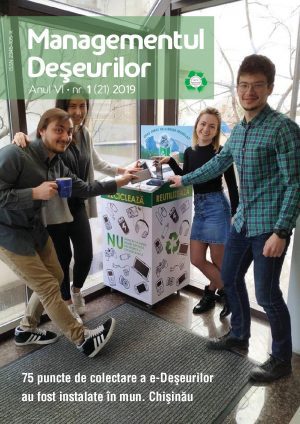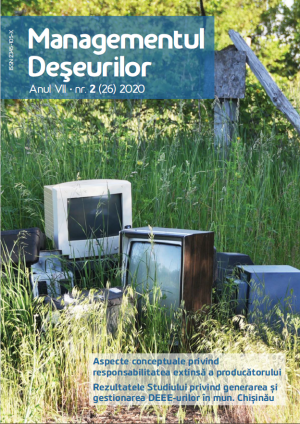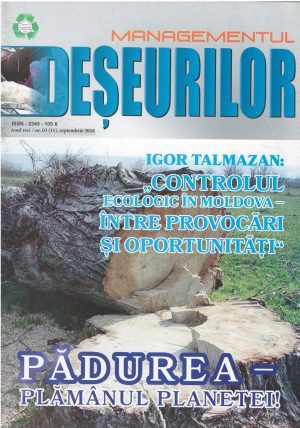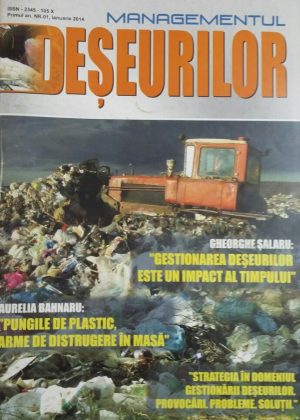Description
 The first online portal with integrated waste management data – https://old.e-circular.org/statistici/
The first online portal with integrated waste management data – https://old.e-circular.org/statistici/
AO Waste Recovery Association with the support of the Austrian Development Agency (ADA), successfully completed the project "Waste statistics - a key enabler for the circular economy".
 The Cabinet of Ministers approved the Government Decision on the organization and operation of the Ministry of the Environment
The Cabinet of Ministers approved the Government Decision on the organization and operation of the Ministry of the Environment
On August 25, 2021, in Chisinau, the Government approved the draft Government Decision on the organization and operation of the Ministry of the Environment. Thus, starting from this day, we have a Ministry of the Environment in operation, the mission, basic functions and rights of the Ministry of the Environment being established.
 For the attention of employers in the Republic of Moldova, the first accredited professional training course was launched "Waste Management Specialist"
For the attention of employers in the Republic of Moldova, the first accredited professional training course was launched "Waste Management Specialist"
AO Association for Waste Recovery accredited the first professional training course "Waste Management Specialist", through Decision no. 100 of 28.05.2021 of the Management Board of the National Agency for Quality Assurance in Education and Research
 Interview with Ionaș Grigore, Director of SRL "Isantal Prim". Economic and environmental benefits generated by Black Soldier larvae.
Interview with Ionaș Grigore, Director of SRL "Isantal Prim". Economic and environmental benefits generated by Black Soldier larvae.
SRL "Isantal Prim" is a family business, which manages a recreation area, restaurant and fishery. The activity has been carried out in the city of Ialoveni for over 15 years. Most of the employees are seasonal, because we operate especially during the warm period of the year...
 The fashion industry and questionable practices in relation to the environment and man
The fashion industry and questionable practices in relation to the environment and man
Since the early 2000s, textile production has practically doubled. Accordingly, the need to use polyester, which is now found in half of all textiles, has also doubled. Synthetic fibers represent over two-thirds (69%) of all materials used in textiles…
 Implementation of Reuse Processes
Implementation of Reuse Processes
Currently, the use of reusable packaging has reached its lowest level in human history. Even in sectors where reuse thrived some time ago, such as beverages, the situation has been gradually declining in recent decades.
 How can better waste management help us achieve the Sustainable Development Goals?
How can better waste management help us achieve the Sustainable Development Goals?
Of the 17 Sustainable Development Goals (SDGs) proposed by the UN, 12 can be achieved by 2030 if the waste management situation in our country undergoes a noticeable improvement.
 Entered in force the Regulation on packaging and packaging waste
Entered in force the Regulation on packaging and packaging waste
The provisions of this Regulation are subject to all packaging placed on the market, regardless of the material from which they were made, whether they are used, whether they come from industry, offices, shops, services, from households, or from any other activities, as well as all packaging waste, regardless of the way of generation.
 How can financial flows be managed under REP schemes?
How can financial flows be managed under REP schemes?
The financial contribution from packaging manufacturers/importers is a way of implementing the principle "polluter pays", respectively the internalization of packaging waste management costs within the product price.
 The subtle disadvantages of bottled water!
The subtle disadvantages of bottled water!
A study conducted by University of Florida demonstrated that if a plastic water bottle is exposed for a long time to high temperatures, the packaging can leach Bisphenol A and antimony (Stibium) into the water, which cause cardiovascular problems and increase the risk of cancer.

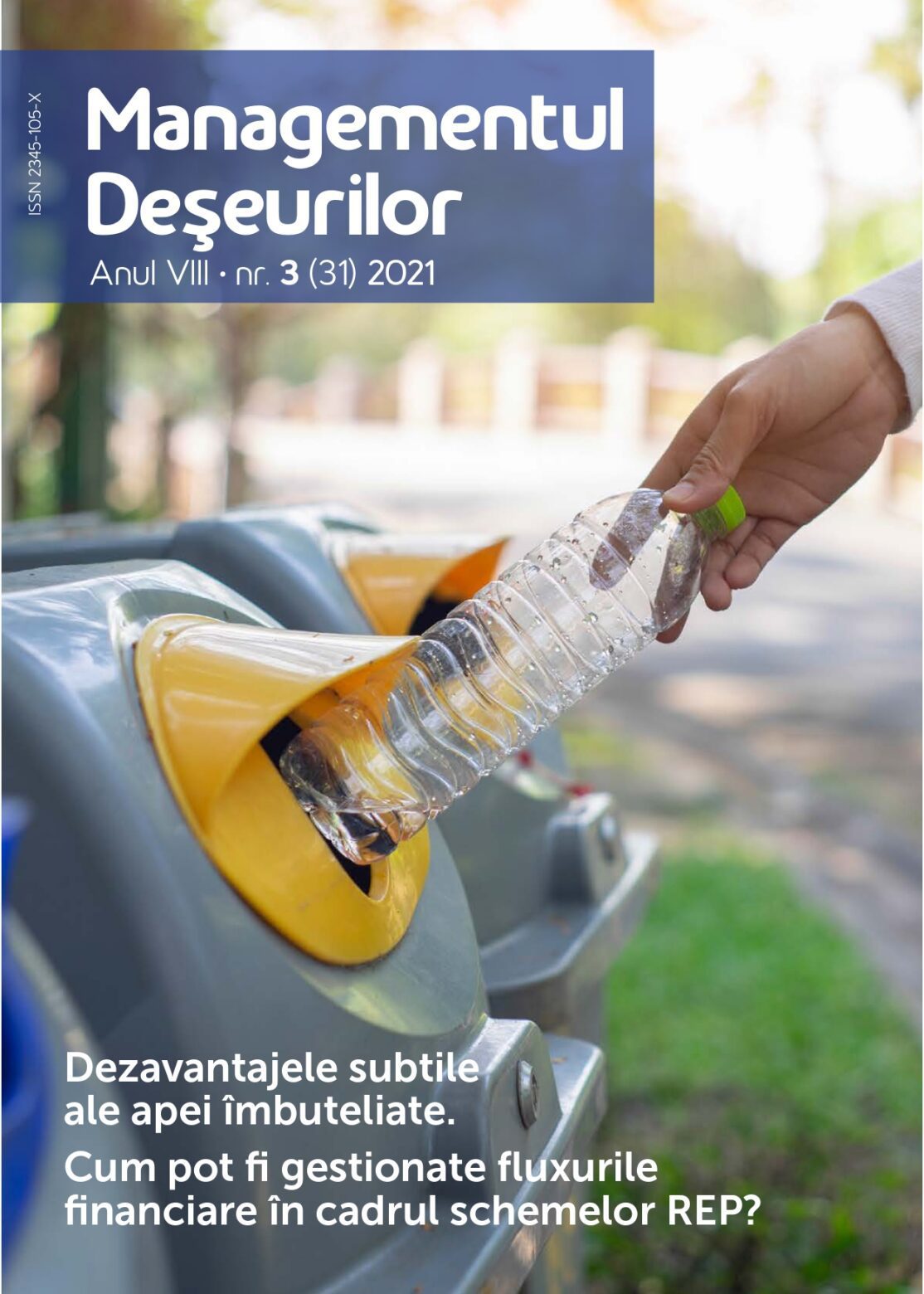
 The first online portal with integrated waste management data –
The first online portal with integrated waste management data –  The Cabinet of Ministers approved the Government Decision on the organization and operation of the Ministry of the Environment
The Cabinet of Ministers approved the Government Decision on the organization and operation of the Ministry of the Environment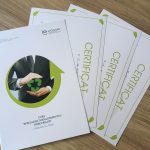 For the attention of employers in the Republic of Moldova, the first accredited professional training course was launched "Waste Management Specialist"
For the attention of employers in the Republic of Moldova, the first accredited professional training course was launched "Waste Management Specialist" 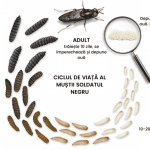 Interview with Ionaș Grigore, Director of SRL "Isantal Prim". Economic and environmental benefits generated by Black Soldier larvae.
Interview with Ionaș Grigore, Director of SRL "Isantal Prim". Economic and environmental benefits generated by Black Soldier larvae. The fashion industry and questionable practices in relation to the environment and man
The fashion industry and questionable practices in relation to the environment and man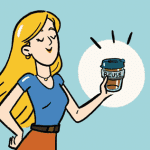 Implementation of Reuse Processes
Implementation of Reuse Processes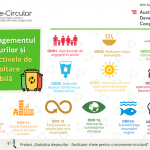 How can better waste management help us achieve the Sustainable Development Goals?
How can better waste management help us achieve the Sustainable Development Goals?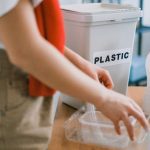 Entered in force the Regulation on packaging and packaging waste
Entered in force the Regulation on packaging and packaging waste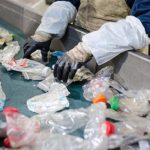 How can financial flows be managed under REP schemes?
How can financial flows be managed under REP schemes?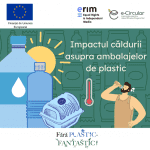 The subtle disadvantages of bottled water!
The subtle disadvantages of bottled water!